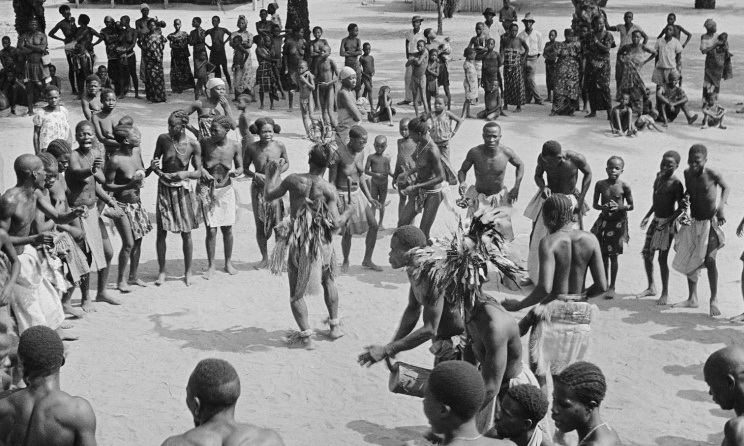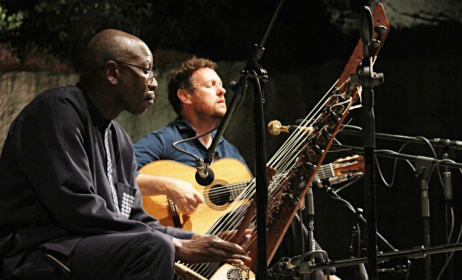Ethnomusicologist’s Congo archive released on his 101st birthday
Online archive Europeana Collections has published an ethnomusicological exhibition called the Ogooué-Congo Mission, which is based on a six-week expedition into Middle Congo in 1946, initiated by French ethnologist Noel Ballif and 11 other explorers including ethnomusicologist GIlbert Rouget. The aim of the mission was to capture the culture and musical traditions of the Congo Pygmies.
 GIlbert Rouget during the Congo expedition in 1946. Photo: Andre Didier
GIlbert Rouget during the Congo expedition in 1946. Photo: Andre Didier Drum players and dancers in Ewo, Middle Congo. Photo: Andre Didier
Drum players and dancers in Ewo, Middle Congo. Photo: Andre Didier Edzingi ceremony in Bangombe, Middle Congo. Photo: Andre Didier
Edzingi ceremony in Bangombe, Middle Congo. Photo: Andre Didier
The digitised collection was released on the same day that Gilbert Rouget celebrated his 101st Birthday this month. Rouget is the last living member of the 1946 expedition. On July 17, it will be 71 years since the group of 12 immersed themselves in the musical culture of the Pygmies.
The expertise of Rouget was a great contribution to creating the musical library available in the exhibition, which is an amalgamation of photography and 500 audio clips of the Pygmies. The exhibition retraces the steps of the explorers in bringing together the archive of the Pygmy culture. Gilbert is credited for being the first to record the music of the people of Congo.
The exhibition is divided into sections that explore the different elements that went into making the excursion in the Congo possible. It first gives the viewer a background on the trip to the Gabon-Congo area that consisted of “a multidisciplinary team” that consisted of a photographer, archaeologists, physics teacher, film directors, ethnomusicologist, geologist, ethnologists and a painter.
The mixture of sound and visuals gives the viewer and opportunity to retrospectively interact with what the journey could have been like for the team of explorers. According to the Europeana Collections website the exhibition sought to “give sound and image a central role”. Being given the chance to listen to the recordings, one can easily imagine the atmosphere and historical context of the expedition.
The sounds available in the archive are owned by the CNRS-Musée de l’Homme in Paris. The exhibition is a tangible look into the music of equatorial Africa and doesn't compromise on giving a holistic picture of the culture that existed in the 1940s.
To view the full archive, click here

































Comments
Log in or register to post comments